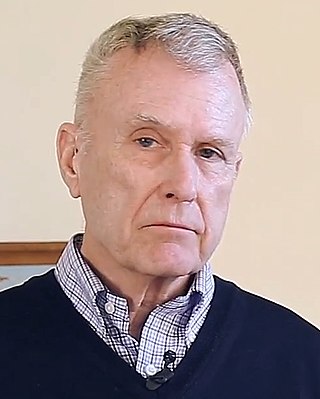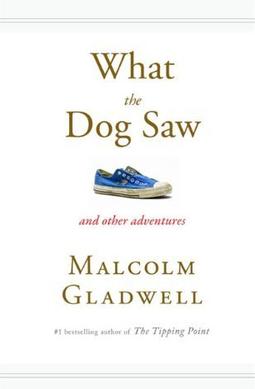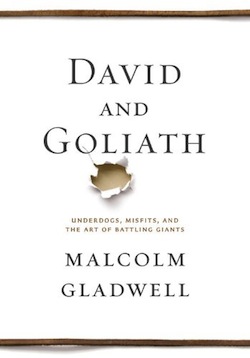
An expert is somebody who has a broad and deep understanding and competence in terms of knowledge, skill and experience through practice and education in a particular field or area of study. Informally, an expert is someone widely recognized as a reliable source of technique or skill whose faculty for judging or deciding rightly, justly, or wisely is accorded authority and status by peers or the public in a specific well-distinguished domain. An expert, more generally, is a person with extensive knowledge or ability based on research, experience, or occupation and in a particular area of study. Experts are called in for advice on their respective subject, but they do not always agree on the particulars of a field of study. An expert can be believed, by virtue of credentials, training, education, profession, publication or experience, to have special knowledge of a subject beyond that of the average person, sufficient that others may officially rely upon the individual's opinion on that topic. Historically, an expert was referred to as a sage. The individual was usually a profound thinker distinguished for wisdom and sound judgment.

A child prodigy is, technically, a child under the age of 10 who produces meaningful work in some domain at the level of an adult expert. The term is also applied more broadly to describe young people who are extraordinarily talented in some field.
A skill is the learned ability to act with determined results with good execution often within a given amount of time, energy, or both. Skills can often be divided into domain-general and domain-specific skills. Some examples of general skills are time management, teamwork and leadership, and self-motivation. In contrast, domain-specific skills would be used only for a certain job, e.g. operating a sand blaster. Skill usually requires certain environmental stimuli and situations to assess the level of skill being shown and used.

Malcolm Timothy Gladwell is a Canadian journalist, author, and public speaker. He has been a staff writer for The New Yorker since 1996. He has published eight books. He is also the host of the podcast Revisionist History and co-founder of the podcast company Pushkin Industries.
In cognitive psychology, chunking is a process by which small individual pieces of a set of information are bound together to create a meaningful whole later on in memory. The chunks, by which the information is grouped, are meant to improve short-term retention of the material, thus bypassing the limited capacity of working memory and allowing the working memory to be more efficient. A chunk is a collection of basic units that are strongly associated with one another, and have been grouped together and stored in a person's memory. These chunks can be retrieved easily due to their coherent grouping. It is believed that individuals create higher-order cognitive representations of the items within the chunk. The items are more easily remembered as a group than as the individual items themselves. These chunks can be highly subjective because they rely on an individual's perceptions and past experiences, which are linked to the information set. The size of the chunks generally ranges from two to six items but often differs based on language and culture.

Blink: The Power of Thinking Without Thinking (2005) is Malcolm Gladwell's second book. It presents in popular science format research from psychology and behavioral economics on the adaptive unconscious: mental processes that work rapidly and automatically from relatively little information. It considers both the strengths of the adaptive unconscious, for example in expert judgment, and its pitfalls, such as prejudice and stereotypes.
The title mnemonist refers to an individual with the ability to remember and recall unusually long lists of data, such as unfamiliar names, lists of numbers, entries in books, etc. Some mnemonists also memorize texts such as long poems, speeches, or even entire books of fiction or non-fiction. The term is derived from the term mnemonic, which refers to a strategy to support remembering, but not all mnemonists report using mnemonics. Mnemonists may have superior innate ability to recall or remember, in addition to relying on techniques.

Richard Eugene Nisbett is an American social psychologist and writer. He is the Theodore M. Newcomb Distinguished Professor of social psychology and co-director of the Culture and Cognition program at the University of Michigan at Ann Arbor. Nisbett's research interests are in social cognition, culture, social class, and aging. He received his Ph.D. from Columbia University, where his advisor was Stanley Schachter, whose other students at that time included Lee Ross and Judith Rodin.
Practice is the act of rehearsing a behavior repeatedly, to help learn and eventually master a skill. The word derives from the Greek "πρακτική" (praktike), feminine of "πρακτικός" (praktikos), "fit for or concerned with action, practical", and that from the verb "πράσσω" (prasso), "to achieve, bring about, effect, accomplish".
K. Anders Ericsson was a Swedish psychologist and Conradi Eminent Scholar and Professor of Psychology at Florida State University who was internationally recognized as a researcher in the psychological nature of expertise and human performance.

Outliers: The Story of Success is a non-fiction book written by Malcolm Gladwell and published by Little, Brown and Company on November 18, 2008. In Outliers, Gladwell examines the factors that contribute to high levels of success. To support his thesis, he examines why the majority of Canadian ice hockey players are born in the first few months of the calendar year, how Microsoft co-founder Bill Gates achieved his extreme wealth, how the Beatles became one of the most successful musical acts in human history, how two people with exceptional intelligence—Christopher Langan and J. Robert Oppenheimer—end up with such vastly different fortunes, how Joseph Flom built Skadden, Arps, Slate, Meagher & Flom into one of the most successful law firms in the world, and how cultural differences play a large part in perceived intelligence and rational decision-making.

The plateau effect is a phenomenon that lessens the effectiveness of once effective measures over time. An example of the plateau effect is when someone's exercise fails to be as effective as in the past, similar to the concept of diminishing returns. A person enters into a period where there is no improvement or a decrease in performance.
In psychology, grit is a positive, non-cognitive trait based on a person's perseverance of effort combined with their passion for a particular long-term goal or end state. This perseverance of effort helps people overcome obstacles or challenges to accomplishment and drives people to achieve.

What the Dog Saw: And Other Adventures is the fourth book released by author Malcolm Gladwell, on October 20, 2009. The book is a compilation of the journalist's articles published in The New Yorker.

David and Goliath: Underdogs, Misfits, and the Art of Battling Giants is a non-fiction book written by Malcolm Gladwell and published by Little, Brown and Company on October 1, 2013. The book focuses on the probability of improbable events occurring in situations where one outcome is greatly favored over the other. The book contains many different stories of these underdogs who wind up beating the odds, the most famous being the story of David and Goliath. Despite generally negative reviews, the book was a bestseller, rising to #4 on The New York Times Hardcover Non-fiction chart, and #5 on USA Today's Best-Selling Books.
David Zachary (Zach) Hambrick is a psychology professor at Michigan State University, known for his research on the effects of practice on proficiency in various skills. Hambrick's research has concluded that practice is important in explaining ability in fields such as chess, music, and academics, but less so than argued by other psychologists, notably K. Anders Ericsson. Hambrick contends that, in addition to amount of practice, working memory capacity is associated with better performance on a wide variety of tasks.

Talking to Strangers: What We Should Know about the People We Don't Know is a nonfiction book written by Malcolm Gladwell and published by Little, Brown and Company on September 10, 2019. The audiobook version of the book follows Gladwell's Revisionist History podcast-style structure, using Gladwell's narration, interviews, sound bites, and the theme song "Hell You Talmbout".

Range: Why Generalists Triumph in a Specialized World is a 2019 book by David Epstein, in which he expands on the points from his previous book The Sports Gene: Inside the Science of Extraordinary Athletic Performance to make a more general argument against overspecialization. In the book, he argues that range – defined as more diverse experience across multiple fields – is more relevant in today's society than specialization because the wicked problems of the modern world require bridging experience and knowledge from multiple fields to foster solutions. Range was a #1 New York Times best seller.
James W. Stigler is an American psychologist, researcher, entrepreneur and author. He is Distinguished Professor in the Department of Psychology at University of California, Los Angeles and a Fellow of the Precision Institute at National University, San Diego.

The Bomber Mafia: A Dream, a Temptation, and the Longest Night of the Second World War is a 2021 book by Malcolm Gladwell that examines the US Bomber Mafia of World War II, which advocated precision aerial bombing as a means to win a war. Gladwell stated the audiobook for The Bomber Mafia came about as an expansion of material from his podcast Revisionist History, and that the print book originated from the audiobook. The book follows the Bomber Mafia, especially Major General Haywood S. Hansell, and the development of a high-altitude precision aerial bombardment strategy in World War II as a means to limit casualties. After difficulties in applying the Bomber Mafia's theoretical strategy, Major General Hansell was replaced by Major General Curtis LeMay, who utilized tactical changes such as attacking Japanese population centers with napalm to ensure a Japanese surrender. Upon release, The Bomber Mafia was met with mixed reviews, with reviewers praising its audiobook version but criticizing the book for a lack of detail and factual accuracy.












